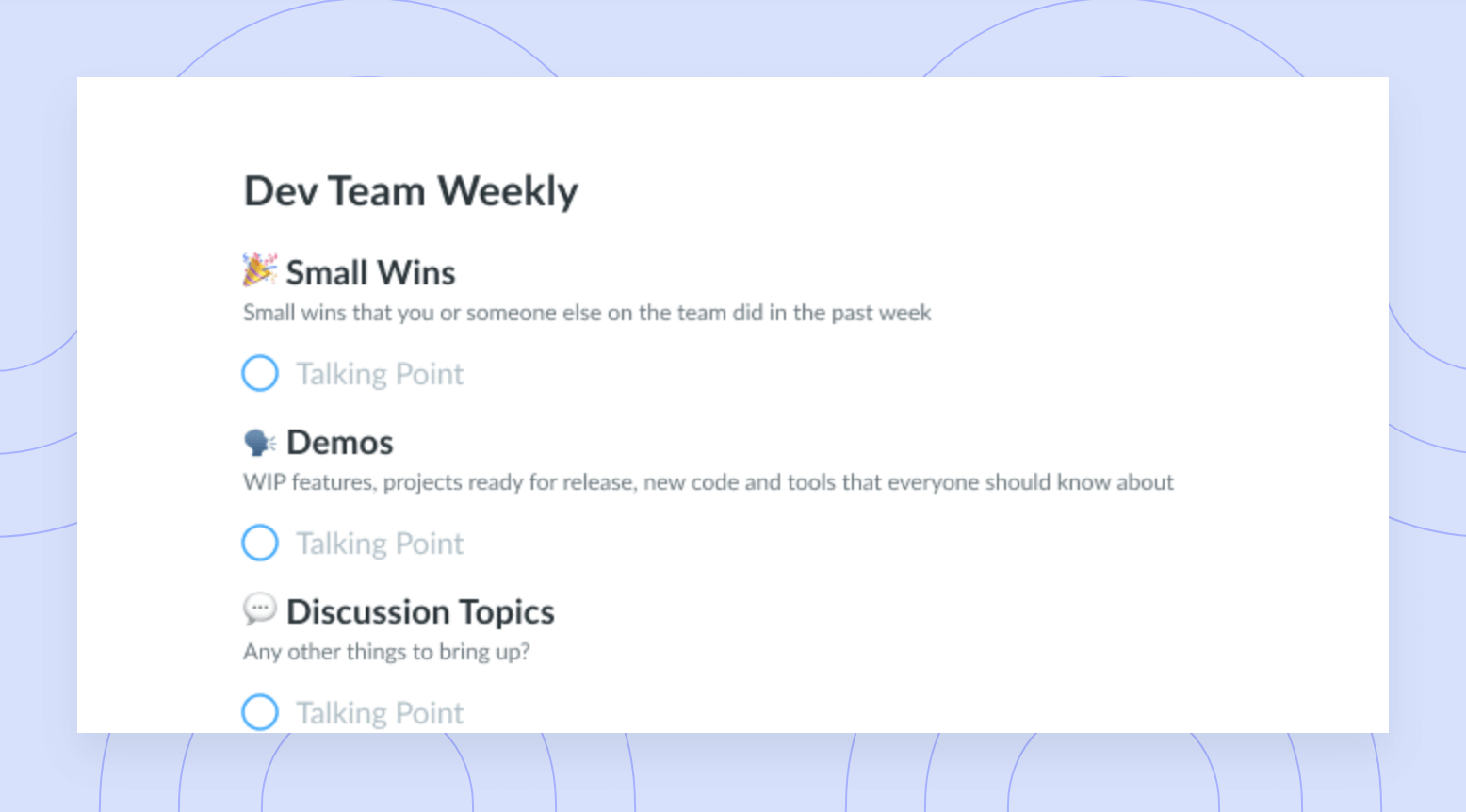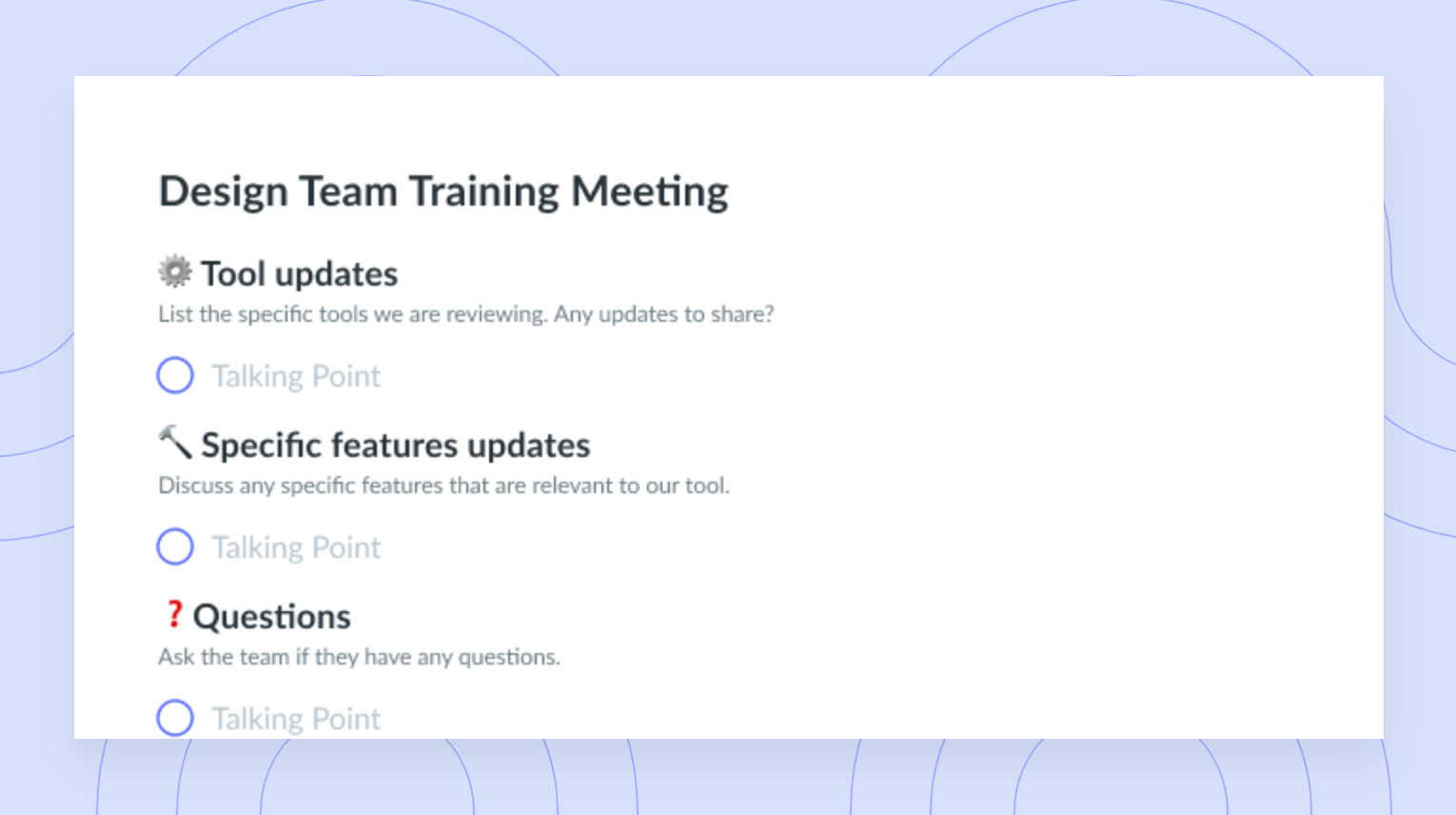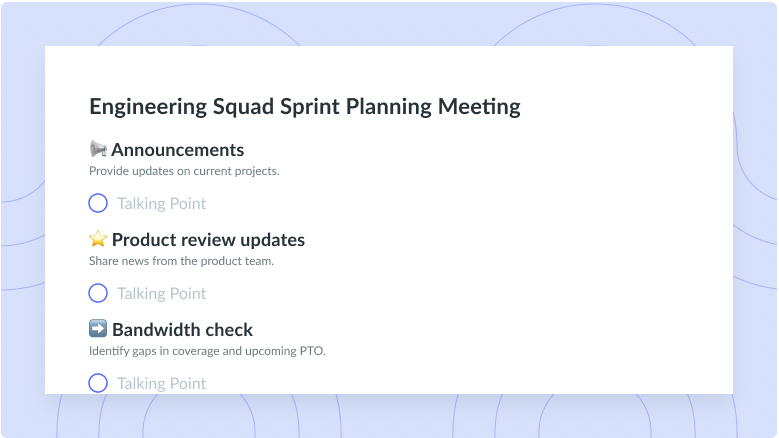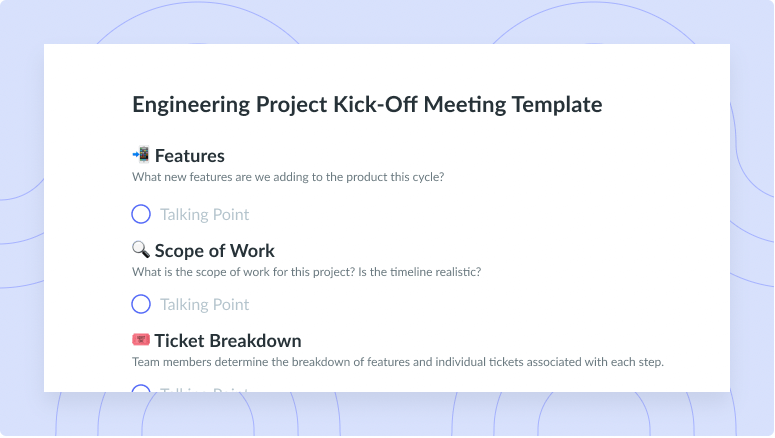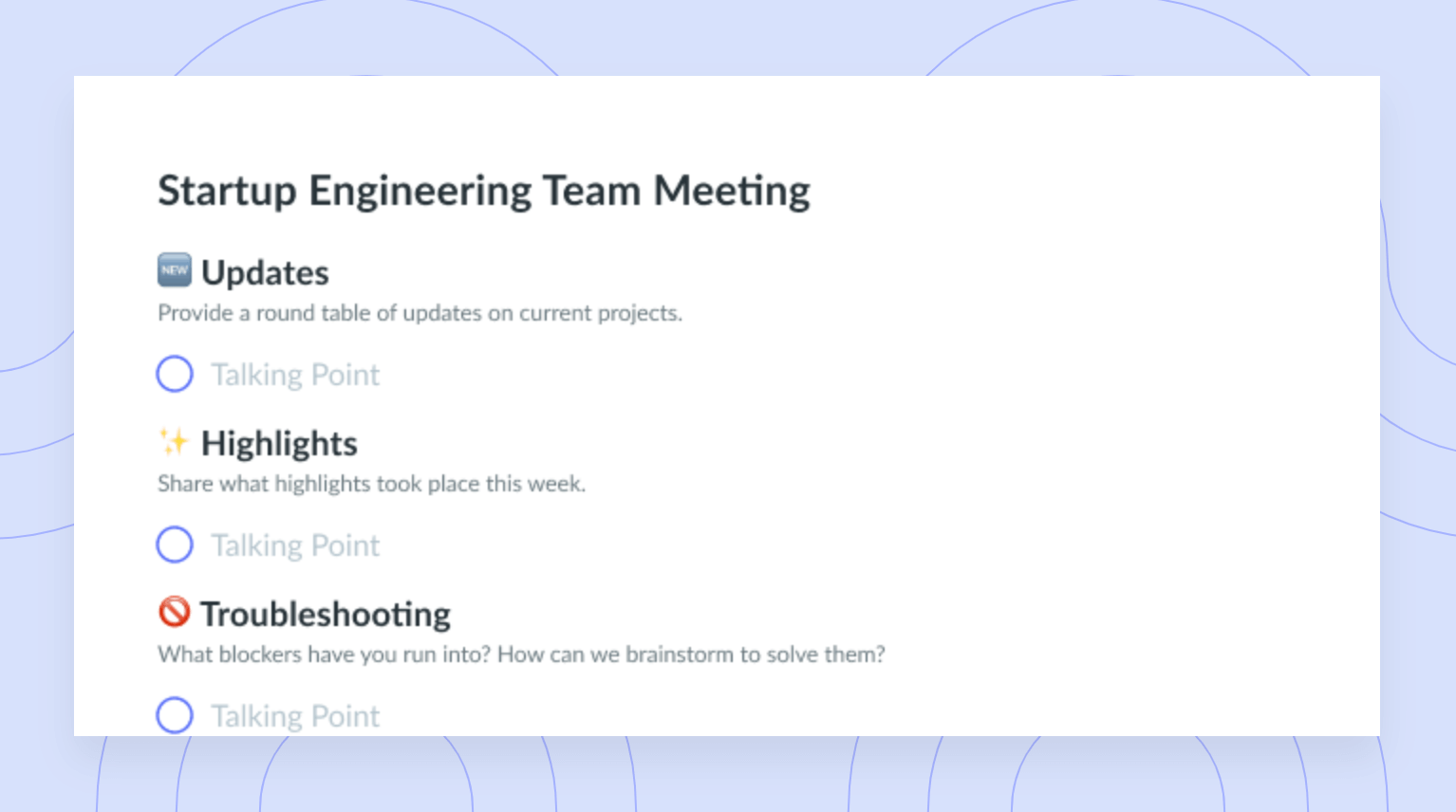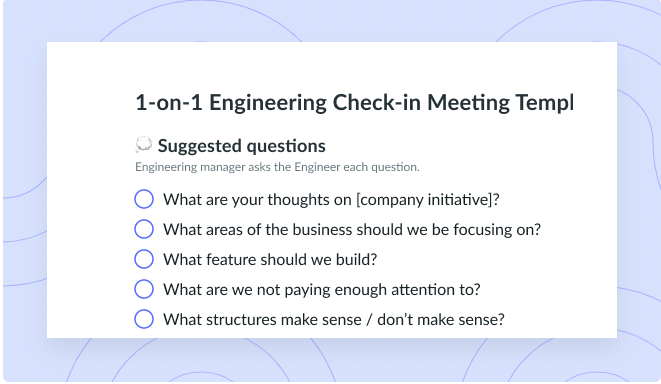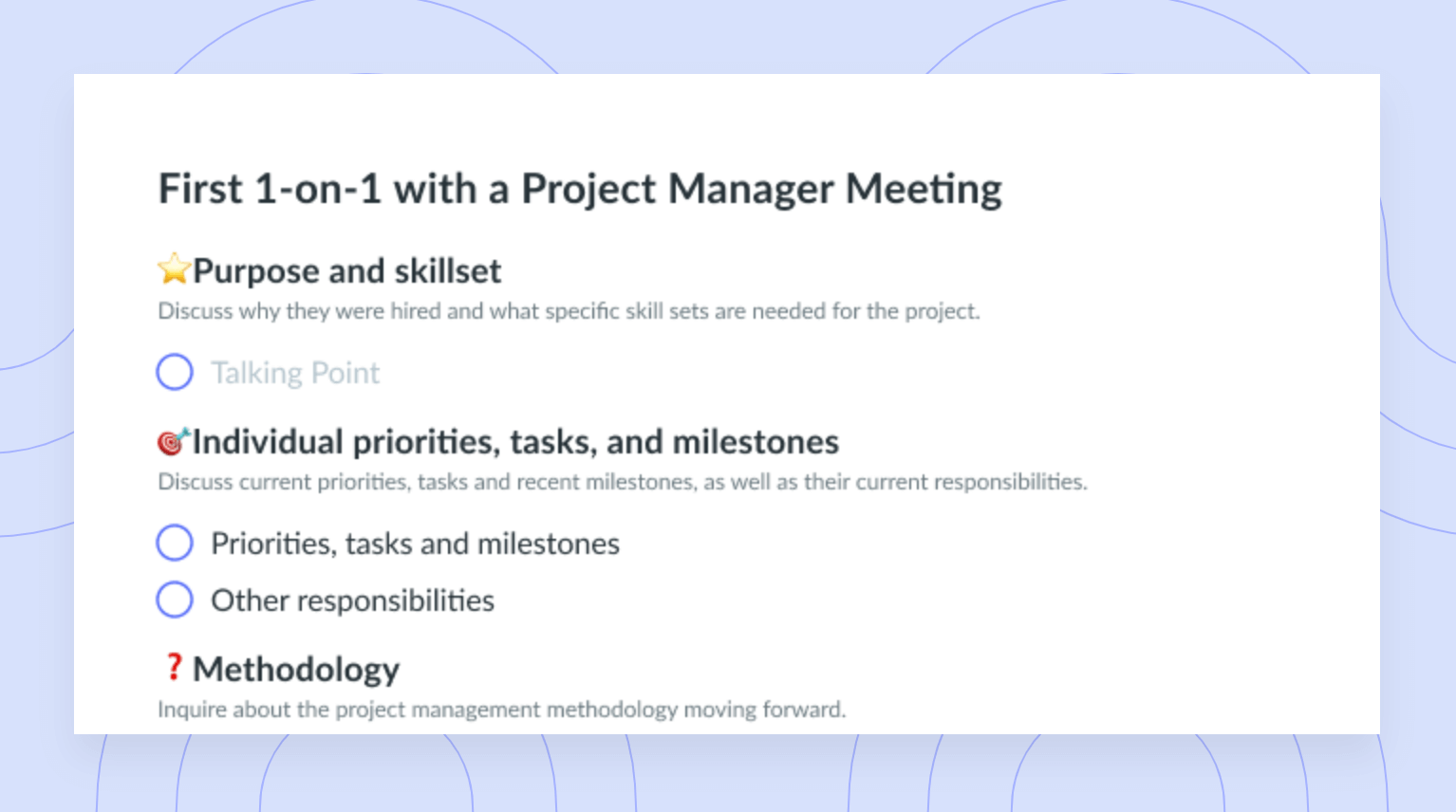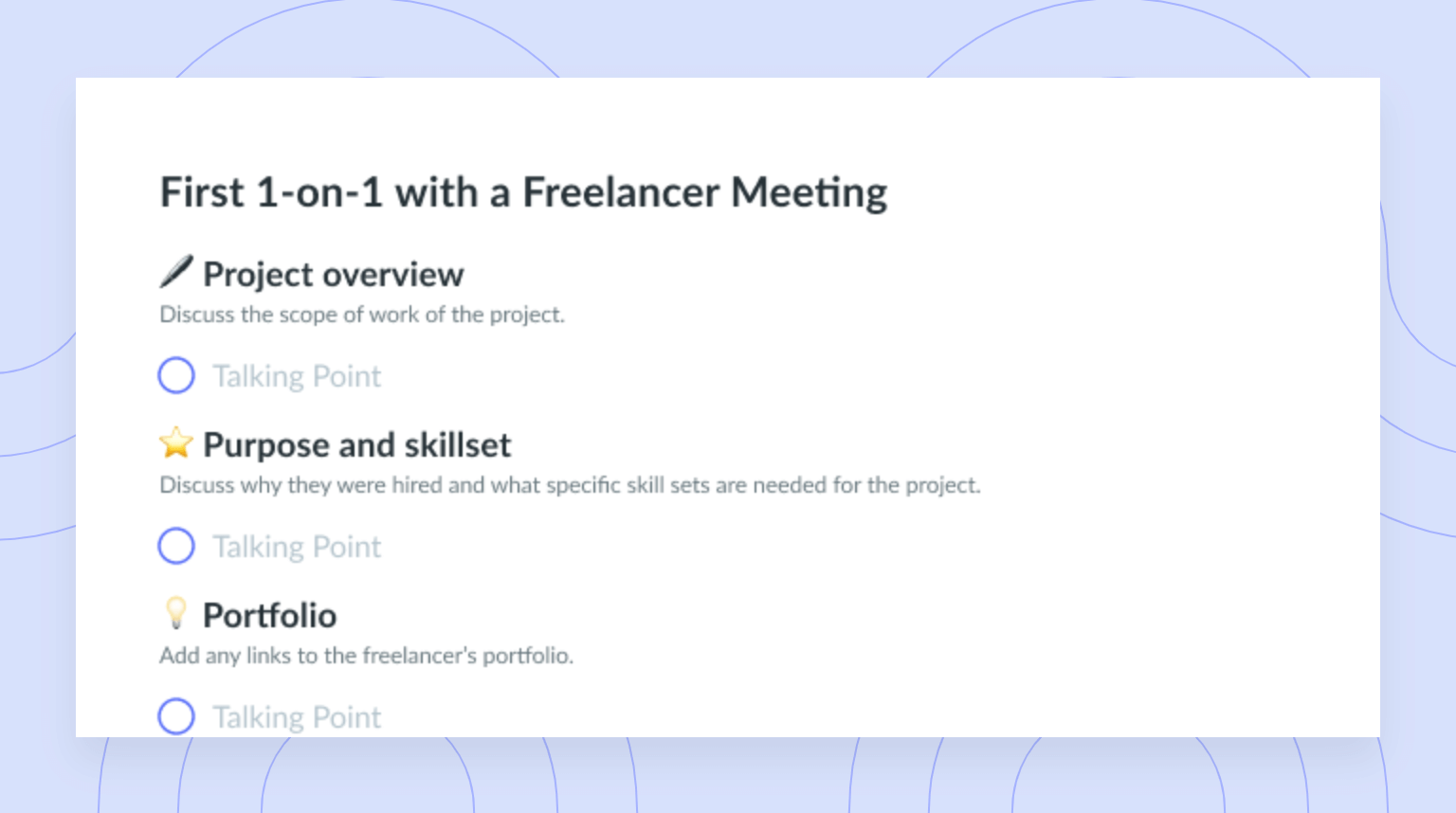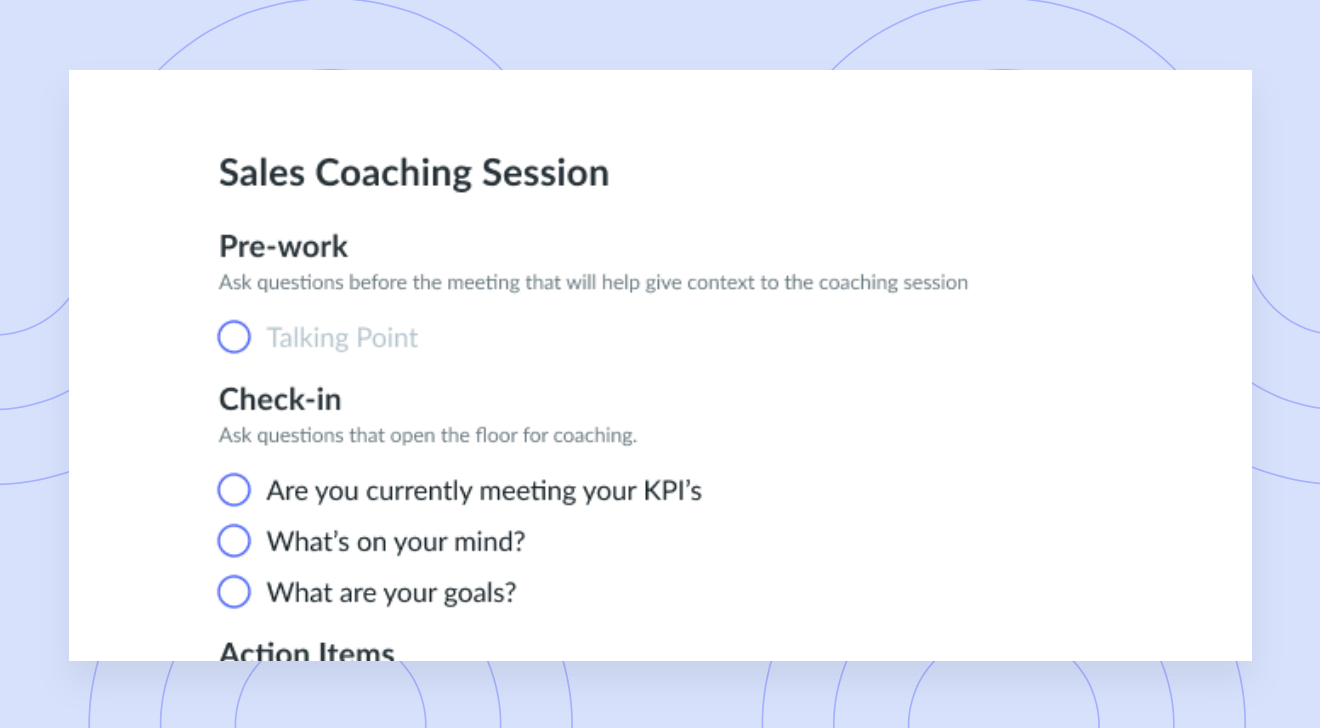Complete Guide to Empowering Engineering Teams
As a team leader, here are 12 tips you can use to empower your engineering team to work as efficiently as possible.
When it comes to engineering teams, sometimes the team lead can make or break the team’s success.
From communication to team morale, it’s up to the manager to do everything they can to ensure their team is working as efficiently as possible. One way to make this happen is to learn how to empower your team. An empowered engineering team will have a clear vision, mission, and purpose, allowing everyone to come together and work towards a shared goal.
Not sure how to empower your team? Fellow is here to help!
The importance of an empowered engineering team
There are many benefits to leading an empowered team. For starters, team morale will be at an all-time high, meaning enthusiasm, excitement, and optimism from your team will be present as they work together towards common goals and tasks. Morale is exceptionally crucial for engineering teams as it can determine the process of task completion, speed up timelines, and even determine the quality of the final results.
This high morale will also lead to increased productivity. Teams that are enthusiastic and in which team members are excited to work with one another are also likely to experience increased motivation and efficiency in accomplishing projects.
And more productivity also equals a decrease in turnaround times. Your engineering team becomes a well-oiled machine, able to work through challenges and roadblocks as a cohesive unit.

Build a culture of effective meetings with your engineering team
Level up your engineering meeting habits to boost engagement and productivity with a collaborative meeting agenda. Try a tool like Fellow!
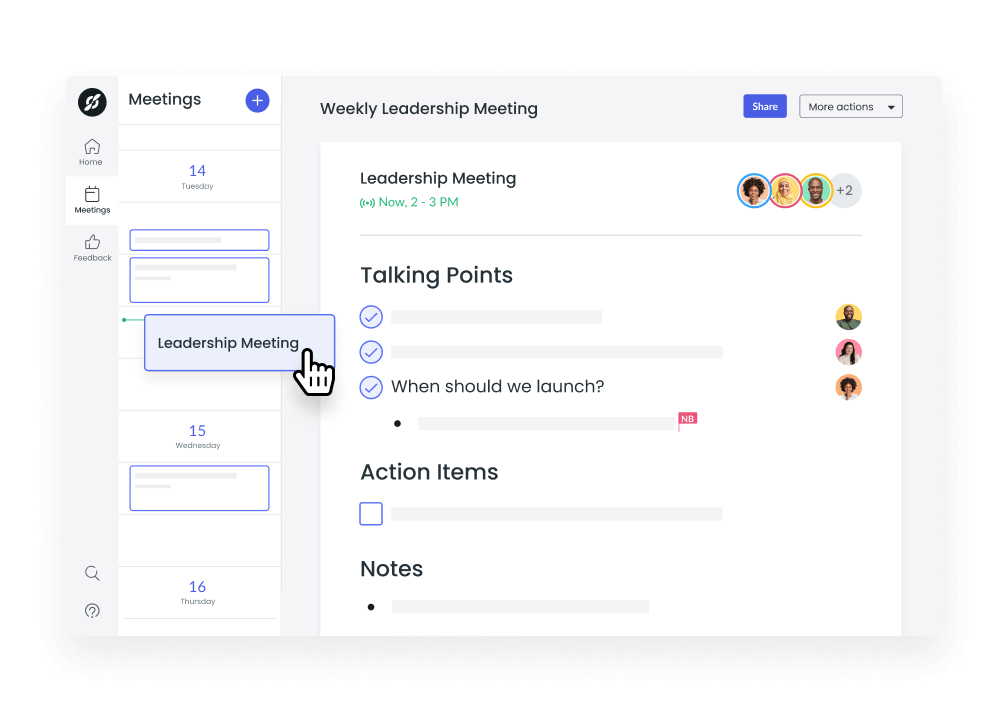
12 top tips for empowering your engineering team
Looking for ways to empower your engineering team? Consider implementing these 12 tips throughout your team.
- Foster team bonding
- Define clear expectations
- Repeat the mission often
- Assign OKRs
- Host recurring one-on-one meetings
- Avoid asserting power over your team
- Give your employees flexibility
- Encourage self-motivation
- Create a good decision-making process
- Host retrospective meetings
- Map out skill sets
- Be transparent to build trust
1Foster team bonding
No matter the size of your engineering team, it’s crucial to foster team bonding. Taking part in these types of activities can lead to more productive and healthier teams and a more collaborative work environment. These activities are also a great way for your team members to really get to know each other beyond the surface level of work.
There are a ton of ways you can go about boosting team relationships. Some ideas to try are:
- Play a board game.
- Embark on an escape room adventure.
- Play trivia.
- Have a show and tell.
- Throw a lunch and learn.
Don’t be afraid to get creative and think outside the box!
2Define clear expectations
Nothing sets a team up for failure faster than team members not knowing what’s expected of them. As the engineering leader, you should take the time to establish clear expectations. This includes what you expect of your employees as engineers and what they expect of you as the team lead.
Setting these expectations helps establish how you and the engineering team members will work together moving forward, foster better communication, and better overcome challenges as they happen.
3Repeat the mission often
Does your team know the why behind their work? Empowering your team often looks like establishing the mission and repeating it often. Knowing the North Star can sometimes get lost among the shuffle of everyday tasks, upcoming projects, and a long list of meetings, so try to make sure this mission is at the center of what your team members do. Remember, instilling a clear mission helps an engineering team better react to fast-changing environments, markets, and technologies.
4Assign OKRs
Objectives and key results (OKRs) need to be clearly assigned to each engineering team member. Thankfully, this empowerment tip can easily be accomplished using a tool like Fellow. Using Fellow, it’s easy to stay on top of your team’s goals by clearly recording, defining, and tracking the progress of your OKRs in the Objectives tool. These can easily be reviewed during team meetings, one-on-ones, or quick check-ins! Just define a cycle, add necessary team members, and specify key results.
Usually, the OKRs you assign your team are ambitious goals that need time to be achieved but also need to be monitored more than just sporadically. Having them in a tool like Fellow empowers your team to accomplish these goals on a timeline that works best for them.
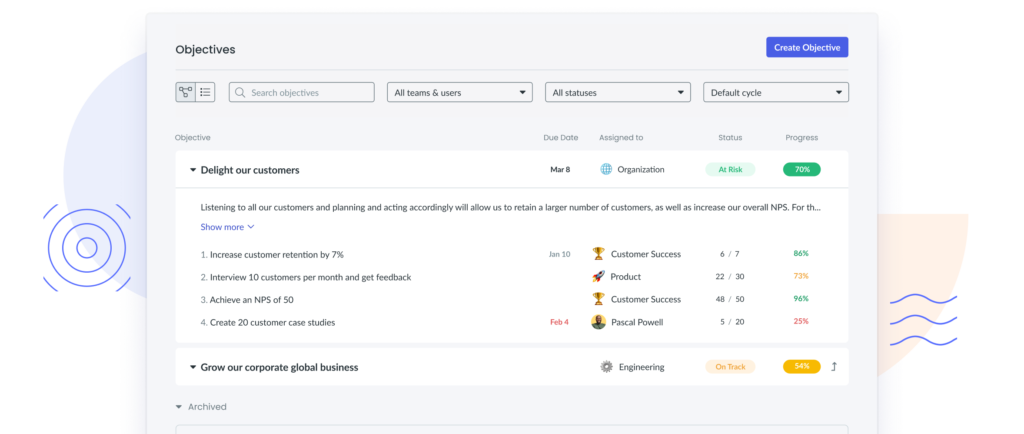
5Host recurring one-on-one meetings
The next tip is scheduling and hosting recurring one-on-one meetings with every member of your engineering team. A one-on-one meeting is when you and an engineering team member dedicate time on your calendars to connect and stay in the loop on team issues, potential roadblocks, priorities, and tasks. It’s also the time when employees can come to you with questions, seek or provide feedback, or ask for coaching on strengths and weaknesses.
These meetings are also where you both can discuss issues you may not want to discuss in a team meeting setting. Whatever the case may be, use this time to foster a positive working relationship with your engineers and empower them to do their best work.
Pro tip 🤩: Try out one of Fellow’s 1-on-1 templates that will foster positive work relationships, set expectations, and help your direct reports be more productive.

6Avoid asserting power over your team
No one likes a team leader who takes advantage of their position of power. Empowering your engineering team starts with leaving your ego at the door. To do this, share credit when credit is due, celebrate wins—no matter how small—and don’t think you’re too good to roll up your sleeves and help when needed.
Remember that when your team succeeds and delivers a product on schedule, this reflects your leadership level. When you avoid asserting power as their leader, you empower them to lean into their own strengths, work together, and reach shared goals.
7Give your employees flexibility
It’s not uncommon to estimate a deadline for a new feature or product and be wildly off. It’s often unlikely you’ll build a feature that takes exactly the amount of time your team has estimated it’ll take. If it takes longer than anticipated, remember to offer flexibility to your team.
In addition to allowing flexible deadlines and milestones, remember that every team member is different and may have a preferred working style to others. Giving everyone the flexibility to work in ways that are best for them will always be in the team’s best interest. This flexibility can go a long way—from allowing employees to choose their own hours to letting them work on independent projects.
8Encourage self-motivation
It’s important that managers empower their engineering teams by encouraging self-motivation. When a team member feels motivated by their work, this self-motivation enables good performance, enhanced learning, and personal growth.
When engineers lose their motivation and feel uninspired by their work, it could translate to feelings of stress, exhaustion, and ultimately burnout.
9Create a good decision-making process
There’s a fine line between shouldering every decision your team makes and completely taking a step back and putting the weight of every decision on your engineers. Both won’t work when empowering the best of your team, so instead, create a good decision-making process with your team members.
To do so, start by identifying the desired outcome of the decision, consider what could go wrong along the way, and consider whom you may need to ask for help along the way. Remember to leave space for feedback, too, because this feedback will come in handy the next time you need to make a similar decision.
10Host retrospective meetings
In addition to holding one-on-one meetings, you should also consider hosting retrospective meetings. These meetings are when you ask your team members for their opinions and let them have a say in the ins and outs of projects, strategies, and initiatives.
This meeting is when you’ll want to reflect on current projects, assess situations, examine the elements going well, and determine if anything should be improved for the future. Then, take the iterations seriously so your team can move forward in a positive direction.
Let your engineering team know that this is the time to discuss problems and identify bugs before the final release of a project.
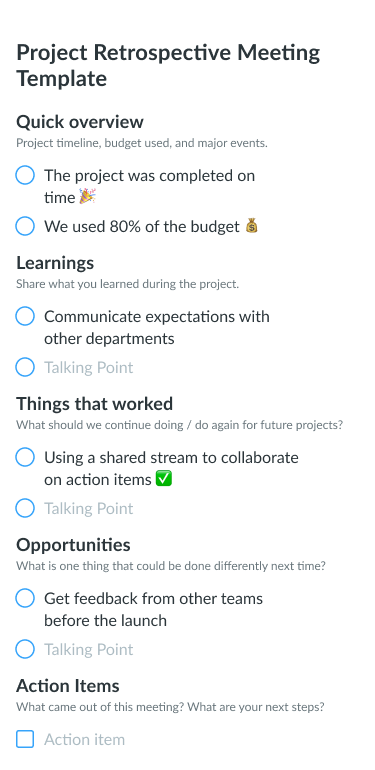
11Map out skill sets
Another great way to empower your engineering team is to invest in them by mapping out skill sets. This can help employees benefit from growth opportunities and internal promotions. When you have a skill set mapped for each engineer, you’ll know who may be the best fit for each role.
Additionally, mapping skill sets can be helpful when forecasting new hires. If you identify a skill lacking amongst your team members, you’ll know to keep an eye out for it when interviewing for a new open role. This will help round out your team so it can function and operate as effectively as possible.
12Be transparent to build trust
Finally, to empower your team, always be transparent to build trust. Your team needs to feel like when they come to you with the tough questions, you’ll give them an honest answer. When your engineers know they can trust you to answer honestly, they’ll feel empowered!
More power to ya!
When leaders take the time to ensure their teams feel empowered, good things follow! Your engineers will work as a more cohesive unit, with better communication and stronger working relationships.









